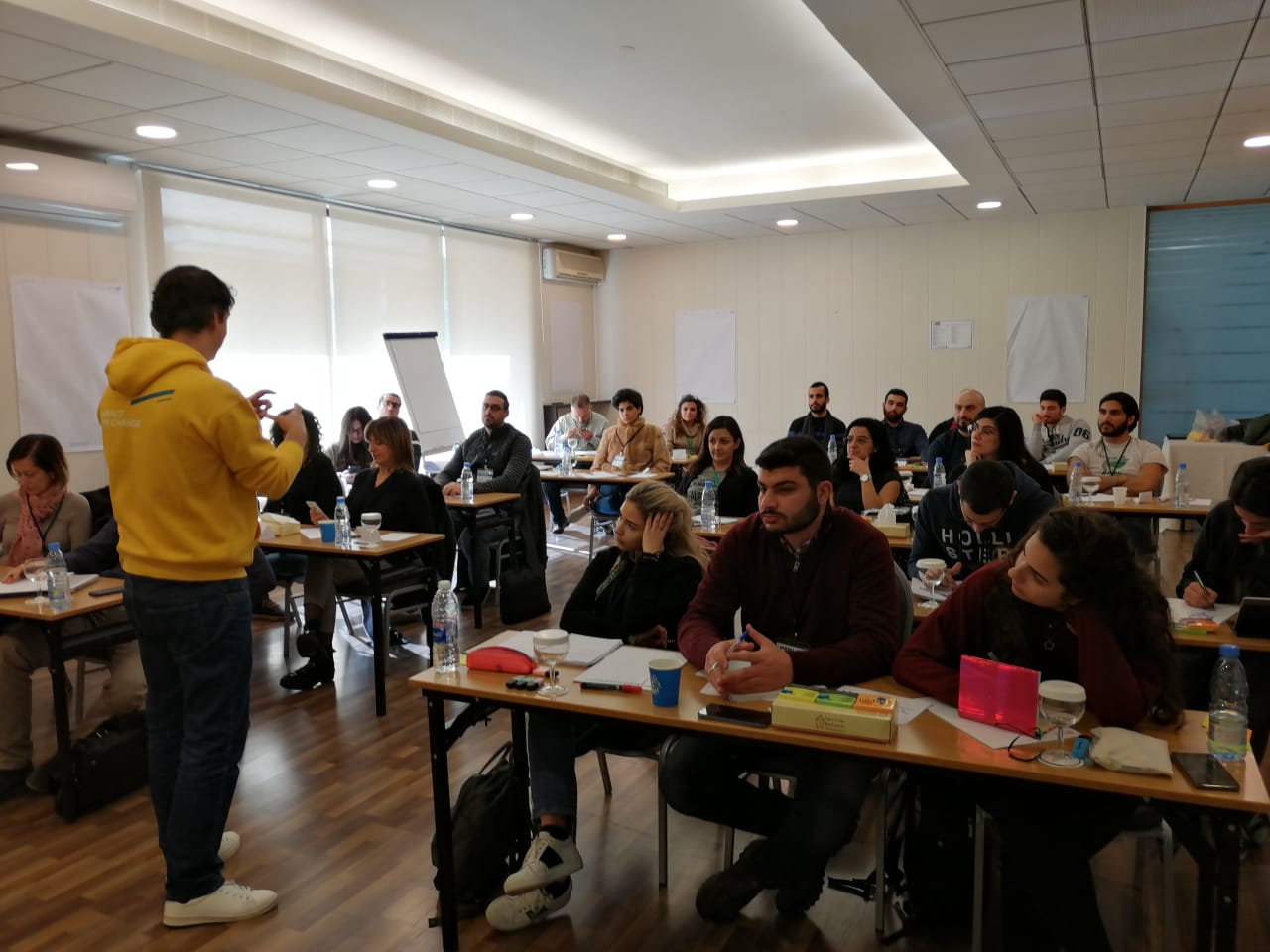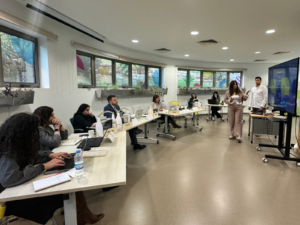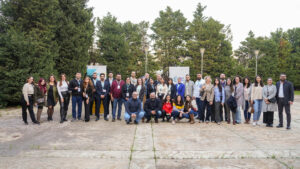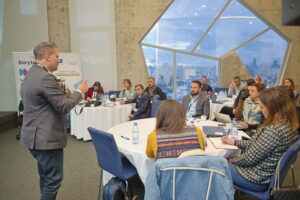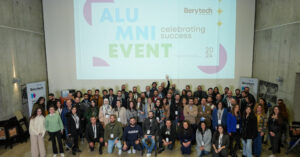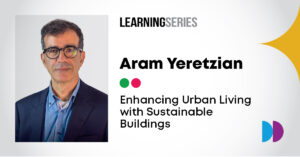
January witnessed the beginning of the third phase of the Agrytech Accelerator where only 9 teams out of the 14 were chosen to continue to the final phase of the program, a 6-month incubation period where they will benefit from up to $22,000 in matching grants. Read about the 9 finalists.
To kick off this third and final phase, the startup teams went through an intensive Scaling Boot Camp to help them develop a compelling growth plan for their solutions. The four-day program was executed by Agrytech’s training partner, the IES – Social Business School with the support of the Agrytech certified team of trainers.
The Boot Camp
Held in a dynamic and experimental approach, the program started by evaluating the current status of each team and the growth challenges they are currently facing. Through a sequence of work sessions, the program allowed the teams to build a growth plan relative to their startup needs. The program ended with pitch presentations of the growth plan developed throughout the program to a jury composed of Head of Global Sales and Mobile Financial Services at Ericsson Rita Mokbel, Berytech Deputy GM Ramy Boujawdeh and Ahmad Touffaha.
The true meaning of Scalability
Carlos Azevedo, trainer and president of IES describes what scaling means to these startups, “For a commercial startup, ‘scaling’ usually refers to moving to a new level of company activities and revenues, beyond what was possible during the initial startup phase. Nevertheless, impact and quality are also important for both the entrepreneur’s motivation and the sustainability of the scaling process. Generating additional revenue and profits and increasing the size of the organization might, but do not necessarily have to happen in parallel. Summing up, growth is the end goal and scaling is the process of achieving it.”
A venture is operating ‘at scale’ when it achieves a new level of impact by significantly increasing:
- The geographical reach of its services;
- The number of beneficiaries and clients;
- The depth of impact and quality per beneficiary;
- Its sales and revenue; and/or
- Its staff size.
To be able to do this effectively, a venture should:
- Be relevant beyond its initial context;
- Be relatively simple (i.e. have a clear proposition that is easy to communicate and understand);
- Offer products and services that are clearly better in commercial and/or impact terms than the alternatives available solutions in its market (we will call it the Alternative Dominant Solution or Solutions);
- Be able to demonstrate excellent economic and impact performance;
- Not depend solely on the talents of a limited number of individuals; and
- Be a committed team involving full-time commitment from the lead entrepreneur and others.
The terms ‘scaling’ (and ‘at scale’), ‘replication’ and ‘growth’ tend to be used inconsistently and in ways that often overlap. Replication is one approach to scaling and involves copying or reproducing all or portions of an existing business. The aim is not to carbon-copy the business, but to replicate and adapt the business model or key components of it, so that it is responsive to the new target markets and environments. Replication can be driven by the original organization working alone or with partners, or it can be managed by a completely separate entity.
It starts with a challenge
Before starting with the growth process, it is essential to take into account the degree of maturity and the current state of each project. For this purpose, it is essential to reflect deeply on the following points:
- Preparation – Is my innovation prepared to grow or to be disseminated?
- Endorsement – Is my innovation well accepted in its target audiences?
- Resources – What resources, financial or others (human, intellectual, material and reputational), are needed to make the growth process sustainable?
- Risk – How likely is the innovation to be implemented incorrectly and/or to fail in the scalability process?
- Return – What is the bottom-line? (Impact is not just about providing service and/or selling products to more people but also about serving them better!)
Important questions that should be answered before starting the process:
- Who are we and what distinguishes us?
- Why do we exist?
- Who benefits from the offer?
- How does our solution works?
- What do we hope to achieve?
- Where are we now?
- Next steps?
- What challenges we are facing?
About the Writer
 Carlos Azevedo is the Executive Director of IES Social Business School who headed the Agrytech Bootcamp in January. He is President of the Board and founder of ESLIDER-PORTUGAL – National Network of Civil Society Leaders, member of the Board of EUCLID-NETWORK – European Network of Civil Society Leaders and member Of the Direction of the Association “Mundo a Sorrir”. Previously, he was General Coordinator of UDIPSS-PORTO – District Union of Private Institutions of Social Solidarity of Porto. He was also Associate Researcher at INSEAD and Assistant Researcher at Universidade Católica Portuguesa – Porto Regional Center. Carlos is a Professor in Higher Education and a Ph.D. in Economics at the School of Economics and Management of the University of Minho.
Carlos Azevedo is the Executive Director of IES Social Business School who headed the Agrytech Bootcamp in January. He is President of the Board and founder of ESLIDER-PORTUGAL – National Network of Civil Society Leaders, member of the Board of EUCLID-NETWORK – European Network of Civil Society Leaders and member Of the Direction of the Association “Mundo a Sorrir”. Previously, he was General Coordinator of UDIPSS-PORTO – District Union of Private Institutions of Social Solidarity of Porto. He was also Associate Researcher at INSEAD and Assistant Researcher at Universidade Católica Portuguesa – Porto Regional Center. Carlos is a Professor in Higher Education and a Ph.D. in Economics at the School of Economics and Management of the University of Minho.

